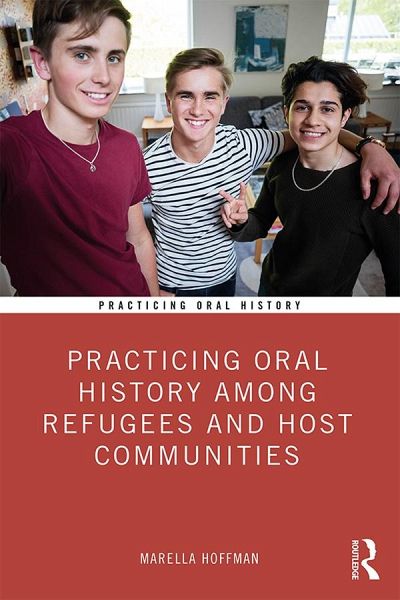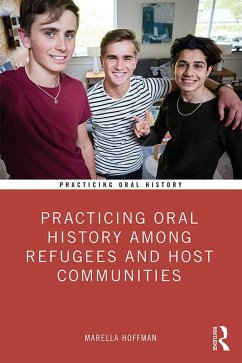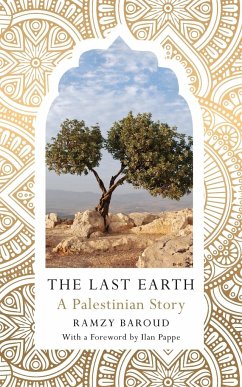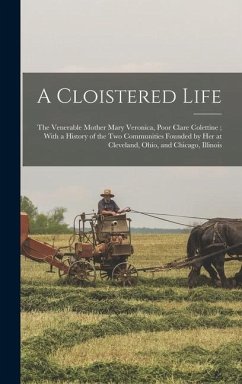
Practicing Oral History Among Refugees and Host Communities
Versandkostenfrei!
Versandfertig in 1-2 Wochen
167,99 €
inkl. MwSt.
Weitere Ausgaben:

PAYBACK Punkte
84 °P sammeln!
This book provides a comprehensive and practical guide to applied oral history with refugees, teaching the reader how to use applied, contemporary oral history to help provide solutions to the 'mega-problem' that is the worldwide refugee crisis. It is ideal for oral historians and those working with refugees or host communities.














